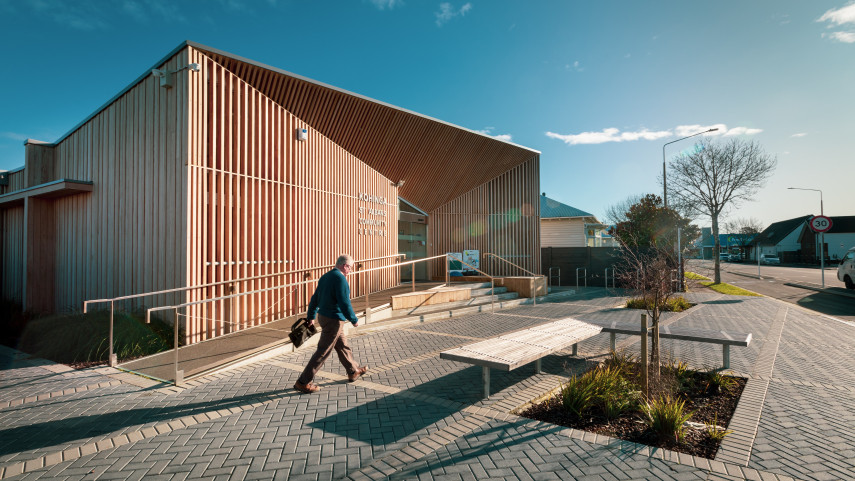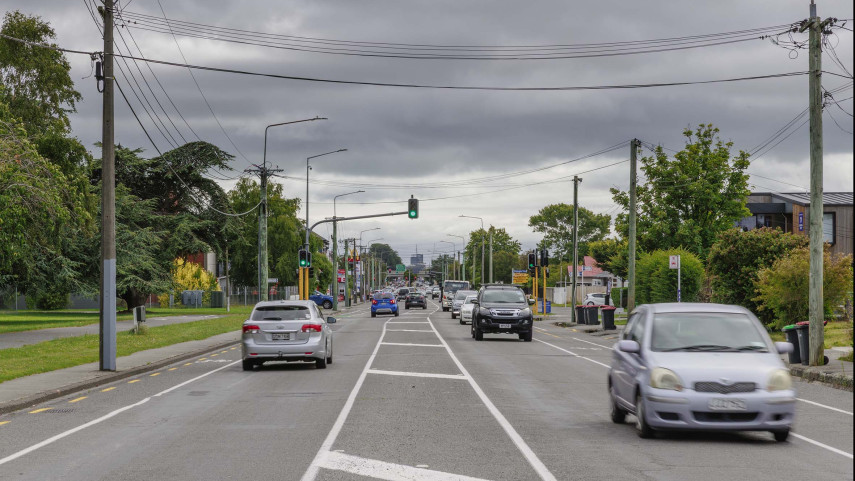If you wish to make changes to your building consent, you can apply for a minor variation or an amendment. A minor variation or amendment must be granted before the building work is carried out.
Minor variation applications
From 1 July 2023, when the proposed minor variation change is outside the stated limitations, we will require you to resubmit your application as an amendment application.
Check for minor variations that are either processed on-site by an inspector or in-house by a building consent officer.
If the proposed change is outside these limitations, it will require you to re-submit as an application for amendment to building consent.
If the proposed change to your building consent does not differ significantly from the plans and specifications to which it relates, it can be processed as an application for a minor variation. You can find more information on what is a minor variation(external link) on the Ministry of Building, Innovation and Employment's (MBIE) website.
Depending on the change, an application for a minor variation can be processed by the Council either by:
- a building inspector on-site; or
- a building consent officer when submitted as an application.
All applications for a minor variation must be authorised by the owner. If the ownership has changed since the building consent was issued, you also need to submit evidence of ownership e.g. record of title, lease, agreement for sale and purchase, other document (showing full name of legal owner(s) of the building).
Minor variation processed by a building inspector on-site
Minor variations that a building inspector can process on-site are changes that are easily established as not reducing the degree of compliance with the building code. For instance, a product substitution with a comparable product (where that product is not specific to a proprietary system), or minor detail changes that are within the scope of an acceptable solution or the specified manufacture's technical specifications.
Examples of on-site minor variation may include but are not limited to:
- as-built plans for the drains that do not change the system type
- roof truss as-built layout by an accredited fabricator that does not include a significant change to the location of concentrated loads
- product substitution of a building wrap, roof underlay or tanking membrane
- change of location of a sanitary fixture, bracing element, meter board, gas bottles or smoke alarms
- change to a flashing detail within the scope of an acceptable solution for Clause E2
- an increase in specification such as using a higher grade of timber treatment, higher concrete strength, glue-laminated timber instead of sawn timber, additional surface water sump, increased dimension of framing member or framing members at closer centres.
Building inspectors can process the above type of minor variations during the building inspection. The details of the minor variation need to be provided in written form (two copies) and require owner or owner's agent approval, but do not require an application for minor variation form to be completed. If the ownership has changed since the building consent was issued, the inspector requires evidence of authorisation by the new owner(s) before the minor variation can be processed on-site.
The building inspector's decision on the minor variation will be recorded on the inspection site notice. Talk to the building inspector if you are unsure about whether the proposed minor variation can be processed on-site.
Minor variation processed by a building consent officer
A proposed change to a building consent that can be defined as a minor variation may involve a technical assessment beyond what is practicable to be processed by the building inspector while on-site.
To apply for a minor variation, complete and supply the following information either via Online Services(external link) or by email to minorvariation@ccc.govt.nz:
- Application for a minor variation to building consent - Form B-007 [DOCX, 66 KB] (also available as a PDF [PDF, 34 KB]).
These applications for minor variation will be processed by a building consent officer and will be processed, where possible, within 48 hours of receiving a complete application. If the application for a minor variation is considered to be a significant change to the plans and specifications to which the building consent relates, you need to apply for an amendment to a building consent.
Ensure your minor variation is granted prior to undertaking the building work. The approved minor variation documents must be on-site at the next building inspection.
If the proposed change significantly differs from your plans and specifications to which the building consent relates, you will need an application for an amendment to the building consent.
On the application form for your amendment to building consent, provide a detailed description of all the proposed changes. Itemise each change with a bullet point and provide references to the documents that are being added, removed, and/or changed.
A detailed description of all the proposed changes will allow your application to be processed more quickly.
We encourage you to apply for an amendment using Online Services(external link). You will need to register to use Online Services; however, it will minimise Council administration time and can lead to faster processing times.
If you submit your application online, via Online services, you will not have to download and complete the B-002 application form.
If you wish to submit your application by post or in person, you can download and complete the application for building consent and/or Project Information Memorandum (Form 2) - Form B002 [DOCX, 438 KB] (also available as a PDF [PDF, 369 KB]).
Some examples of amendments include, but are not limited to:
- Any alteration that increases or decreases the floor area of the building.
- Relocating or removing internal load bearing supports.
- Substantive changes to ground levels, resulting in changes to foundations or retaining structures.
- Changes to fire safety aspects.
An application for amendment is processed in the same way as an original building consent application. The Council is required to process the amendment application within 20 working days, and charges for processing at the same hourly rates. However, unless the changes are extensive, an application for an amendment to a building consent can usually be processed faster.
Ensure your amendment is granted before undertaking the building work. The approved amended plans and specifications must be on-site at the next building inspection.
A lodgement fee is charged for an application for amendment of a building consent.
You may also incur charges based on the additional time required to review and process the amended consent, or for additional inspections.
There is a fixed fee for minor variations.
Refer to the building consents fee schedule to view amendment and minor variation fees.
Related news

Rebuilding our communities
Following the 15th anniversary of the 22 February earthquake, we’re looking at different Council aspects of the rebuild, and how far we’ve come. Next up, community hubs and housing facilities.
25 Feb 2026
Community board three-year plans need your input
Have we got the priorities right for your neighbourhood? Help shape your future with Christchurch's community boards.
24 Feb 2026
Transport and water upgrades planned for Lincoln Road
A major upgrade to Lincoln Road starts in April, installing peak hour bus lanes and improving water and wastewater services.
12 Feb 2026